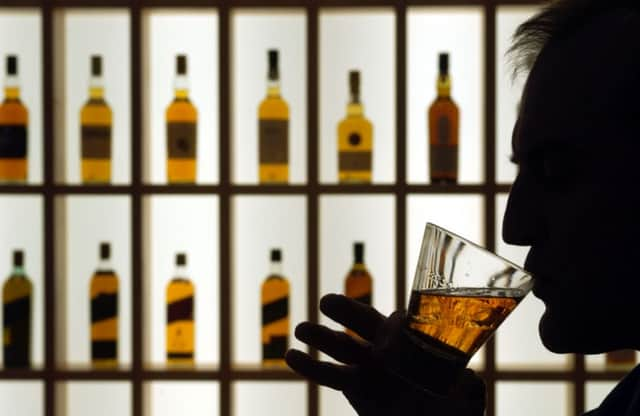Whisky sector toasts No vote but wary of tax rise


The move comes as Scotland’s largest distiller, Diageo, highlighted the potential for the multi-billion-pound industry now that the referendum uncertainty was over but urged “no further regulation or taxation on the industry”.
The process of putting together the industry’s case ahead of more devolution will come as it also prepares to begin lobbying ahead of the UK Chancellor’s next Budget, calling for a 2 per cent cut in excise duty on spirits.
Advertisement
Hide AdAdvertisement
Hide AdDavid Frost, the Scotch Whisky Association’s chief executive, said he welcomed the stability that the end of the referendum process brought and that the debate had shown the need for government and business to “collaborate to address long-term economic challenges”.
“We will be looking closely at plans for further devolution within this context,” Frost stressed.
“There must now be a renewed focus on improving the business environment so that Scotland’s economy can grow to everyone’s benefit. The Scotch whisky industry is determined to play a leading role in shaping discussions that are fundamental to the future success of our industry and our nation.”
Johnnie Walker-maker Diageo said it would look to work with the UK and Scottish governments to ensure “the most favourable business environment possible for the firm and Scotch whisky as an industry.
“The future for this sector will remain bright provided there is no further regulation or taxation on the industry,” it stressed, pointing out that in a world market Scotch whisky “competes fiercely” with other categories, such as American and Irish whiskey.
Miles Beale, chief executive of the Wine & Spirit Trade Association (WSTA), said the trade body would also now be working to improve the business environment: “Scottish voters have made a historic choice. Further devolution is certain and the WSTA will be working closely with its members to ensure that any barriers to the way they do business in Scotland – or the rest of the UK – are minimised. Scotland is, and always will be, an important player in the UK wine and spirit sector.”
Billy Walker, chief executive of the Edinburgh-headquartered BenRiach Distillery Company, which owns the BenRiach, GlenDronach and Glenglassaugh brands, said he had been “absolutely delighted” by the referendum result.
“I was extremely concerned that separation would bring unnecessary risks, with the potential for higher interest rates and diminished global influence an inevitable consequence. Fortunately, stability and continuity have been restored.”
Advertisement
Hide AdAdvertisement
Hide AdLast month, BenRiach announced record annual pre-tax profits of £8.9 million on a turnover of £34.5m. The firm employs 120 people across four sites. Ahead of the vote, analysts at Dutch bank Rabobank warned that a Yes outcome could hit whisky exports if Scotland lost access to the EU’s free trade area and to markets in the rest of the world where Brussels has trade agreements.
Scotch whisky accounts for a quarter of UK food and drink exports and generated £4.3 billion for the UK balance of trade. Around 10,000 people are directly employed in the Scotch whisky industry and over 35,000 jobs across the UK are supported by it. About £1bn from the trade is contributed to the Exchequer in taxes.
More than 100 distilleries are licensed to produce Scotch whisky.